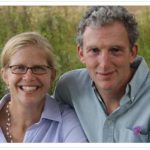Maine Camp Community Service Programs: Kids Paying it Forward
Traditional youth camps bring to mind summers of play, friendship, and the challenge of learning new skills. But at their very core, camps are communities. They teach kids to build connections, resolve conflicts, and share activities and living space. Increasingly, camps also offer the children they serve the chance to contribute hard work and commitment to service projects. From pitching in both within camp boundaries and beyond, many camps in Maine support their campers in using their energy and enthusiasm for the greater good. It’s just another example of how camps across the state seek to teach youth lessons for a lifetime. Many youth camps across the state promote service work in their missions and incorporate ongoing service in campers’ activities. This two-part blog takes a look at four youth camps in Maine and their efforts to share the value of community contributions. Part I featured Camp North Star and Camp Nashoba North. Part II, below, features Hidden Valley Camp and Alford Lake Camp.
Hidden Valley Camp, Freedom, ME
Hidden Valley Camp, in Freedom, promotes service work across all age groups. Owner and director Peter Kassen, who operates the camp with his wife, Meg, says community service “has become part of our culture.”

“Campers are committed to the idea. They really believe in it,” Peter says.
The coed camp’s service initiatives reach children of all ages. Outreach Outdoors encourages campers aged eight through 13 to participate in outdoor projects such as working on trails, picking up litter, or helping local farmers.
“We try to push outdoor pursuits,” Peter says. The projects enable campers to pitch in with community needs, and also offer “a nice exposure to rural culture.”
“It’s different. There are rural opportunities they may not avail themselves of at home.”
In addition, Peter says, more youth camp directors have settled near their camps year-round and “become part of the community. It’s nice to introduce the camp community to our neighbors.”
Hidden Valley Camp also offers campers aged 14 to 16 a unique opportunity to build their own small, self-sufficient community. Hidden Valley Community is a group of about eight or nine all-genders teens, along with two staff members, who live in a camp-owned, off-the-grid farmhouse on 17 acres of land less than a mile from the main campus.
“They look at community from all angles,” Peter says. “They have to create a community among themselves,” tending a garden, preparing and sharing meals. The group uses an outdoor privy and has cold-water-only showers.
“The first 24 hours I think they wonder ‘what have I gotten myself into?’” he says.
The group’s community building also includes service projects both within camp – such as a program for younger campers. But the primary focus of Hidden Valley Community is participation in longer term projects in the broader community. Contributions include work on local land trusts, trail maintenance, and tasks on local farms. “There’s also a social justice component,” Peter says, including pitching in at Portland’s Preble Street Resource Center.

Peter says they make sure a lifeguard is available for the group to swim on a hot day, and in the evenings, the teens may undertake an art project or other activity. “But by and large, they are really focused on community life,” he says.
“It’s a completely independent life, way different from other camp experiences,” he says. “But Meg and I are half a mile away.”
“Being on these little farms, they’ve never seen anything like that. It’s a real education for them. They see how people are making a life for themselves.”
And for four weeks, in that farmhouse off the grid, these teenagers are learning to make a life for themselves – both in the community they have created, and in the community at large.
To learn more, check out this link! https://hiddenvalleycamp.com/programs/teen-programs/hv-community/
Alford Lake Camp, Hope, ME
Sue McMullan, long-time director of Alford Lake Camp in Hope, says the girls’ camp’s community service commitment is “part of our whole philosophy.”
“We do it because we want to teach our campers that it’s really important to give back, to serve others,” McMullan says.
The practice of serving others is woven into each girl’s camp experience. Each of the camp’s 30 tent groups is assigned an area of camp to keep clean, McMullan says. For example, a group may be charged with making sure no trash is left behind on the sports fields, with sweeping porches, or helping in the dining room.
The assignments “are not only just for them to have a specific area, but also to raise consciousness that this is our place, our summer home,” she says.

“It’s a conversation. We use community service as a teaching tool,” McMullan says.
But like many other Maine camps, Alford Lake Camp promotes service work beyond camp boundaries. Girls can sign up to participate in a range of activities; McMullan says they vary from summer to summer. Campers have visited area nursing homes to participate in art projects or to sing, and they have also provided childcare help at a local homeless shelter. The latter activity helps develop “an awareness that families need help,” she says.
Other ventures have included helping with cleaning projects at the local fire department and working with animals at the area animal refuge league. Campers also help pick crops at local farms.
“We’ve been doing it for ten or twelve summers,” McMullan says. “We need to be educating our kids and our campers that it’s really important to be giving to others.” And hopefully that focus is simply continuing an ethic the girls have at home, she says.
“We have really nice, quiet relationships with our neighbors,” she says. At the same time, she says “we’re gung-ho. We call places and say we’d like to come and help.”
McMullan acknowledges that the activities demand the same care and concern for campers’ well-being and safety that is essential on camp property. And regardless of where the girls are pitching in, “it’s really a continuation of our camp philosophy.”
“When our campers go out, the whole thrust is helping others.”
Youth camps in Maine offer recreation and play to be sure. At the same time, they teach both hard skills and more fluid – and invaluable – social and emotional learning that stems from their missions. Living in community, whether with tent or cabinmates, on trips or on sports teams, or by interacting with neighbors in need, offers youngsters ongoing opportunities to support, help, and learn from one another. And when the season ends, camp directors say campers go home with knowledge and experiences that can be transformative.